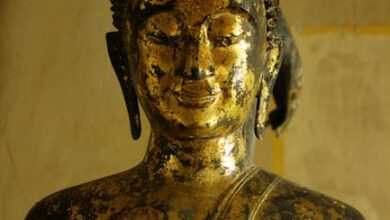Middle-earth’s True Alliances: A Lesson in Unity, Not Division

It seems that almost daily, another tweet from Elon Musk sparks a fresh wave of debate, outrage, or sometimes, just plain head-scratching. Lately, the billionaire entrepreneur has ventured into the realm of high fantasy, specifically J.R.R. Tolkien’s magnificent ‘The Lord of the Rings’. He’s been using references from Middle-earth to comment on contemporary issues, including immigration. On the surface, it might seem like a clever, if a little nerdy, way to make a point.
But here’s the rub: if you’ve actually read Tolkien, deeply and with any level of nuance, Musk’s analogies don’t just miss the mark – they fundamentally invert the very spirit of the stories. It’s not just a misreading; it’s a profound misunderstanding that, frankly, reveals a worrying lack of engagement with the themes that make Tolkien’s work so enduring. When such a prominent figure, or even government agencies like the Department of Homeland Security, misappropriate a beloved narrative in such a way, it’s worth taking a closer look at why they’ve got it all backwards.
Middle-earth’s True Alliances: A Lesson in Unity, Not Division
One of the most common, and frankly, lazy, misinterpretations of ‘The Lord of the Rings’ is to reduce it to a simple “us vs. them” narrative. Good guys (the Free Peoples) fighting bad guys (Sauron’s hordes). It’s an easy framework to co-opt if you want to paint any ‘other’ as an invading evil. But this overlooks the very fabric of Middle-earth itself, which is far more complex and, dare I say, inclusive than such a reductionist view allows.
Consider the Fellowship. It wasn’t a homogeneous group. You had Elves, Men, Dwarves, and Hobbits – distinctly different races, with their own histories, prejudices, and cultures. Their alliance wasn’t born of inherent similarity, but of a shared, existential threat and a willingness to overcome their differences for the greater good. Legolas and Gimli, initially wary and representing ancient feuds, become the best of friends, embodying a bridge between their ancient, often warring peoples. This is a story about building bridges, not walls.
The “invaders” in Tolkien’s world aren’t people seeking a better life or fleeing hardship. They are Orcs, literal abominations created by dark magic; they are mindless pawns, driven by an overarching evil. Sauron’s forces aren’t seeking economic opportunity or cultural exchange; they’re driven by conquest, subjugation, and the absolute destruction of anything good. Equating human migrants, who are seeking safety, opportunity, or refuge, with the literal armies of a demonic overlord is not only a gross distortion of Tolkien’s text but a dangerous dehumanization of fellow human beings.
Middle-earth, in its rich tapestry, is built on layers of migration, settlement, and cultural blending. The Númenóreans (Men) migrated across the seas, settling Middle-earth. The Elves themselves have various lineages with different histories and paths. Even the Hobbits, our seemingly unchanging protagonists, have a history of migration and settling new lands. The strength of the Free Peoples often lay in their diversity and their capacity for empathy and alliance, not in rigid, exclusionary borders.
Tolkien’s Own Values: Compassion, Fellowship, and Anti-Authoritarianism
To truly understand where Musk (and others who share this misreading) go wrong, one needs to grasp the heart of Tolkien’s philosophy. J.R.R. Tolkien, a veteran of the horrific trenches of World War I, deeply understood the banality of evil and the importance of simple goodness, courage, and compassion in the face of overwhelming darkness. His work is profoundly anti-authoritarian and deeply skeptical of power concentrated in single hands, whether it’s the One Ring or the corrupting influence of industry on nature.
Tolkien was a philologist, a scholar of languages and ancient myths. He didn’t just invent a world; he built it on a foundation of historical linguistic evolution, where cultures meet, mingle, and transform. His world celebrates the resilience of the common folk, the wisdom of humility, and the strength found in unexpected friendships. The hero, Frodo, is a small, unassuming Hobbit, chosen not for his strength or might, but for his purity of heart and resistance to the Ring’s corrupting influence – a distinctly un-muscular, un-power-driven heroism.
The entire saga is a testament to the idea that victory against overwhelming evil isn’t achieved through superior might or purity of bloodline, but through collective effort, self-sacrifice, and an unwavering commitment to the good of all, regardless of origin. When Gondor is besieged, its saviors aren’t just its own people, but the Rohirrim, a completely separate kingdom, and ultimately, a ghostly army and an unlikely alliance forged through ancient oaths. This isn’t a narrative about closing ranks; it’s about opening them wider than ever before, understanding that strength comes from solidarity.
The Problem with ‘Purity’
The very idea of a “pure” race or culture, often invoked in anti-immigration rhetoric, stands in stark contrast to Tolkien’s nuanced view of Middle-earth. The Elves, in their “purity,” are fading from the world. The future belongs to Men, a race defined by its diversity, its capacity for change, and its eventual dominion over Middle-earth. Tolkien’s work acknowledges the beauty of individual cultures but emphasizes the ultimate necessity of cooperation and shared humanity (or shared ‘Free People-ness’) to overcome the greatest threats. This perspective is a far cry from exclusionary narratives.
The Danger of Literary Misappropriation and Dehumanization
When public figures like Elon Musk, with their vast reach and influence, wield cultural touchstones like ‘The Lord of the Rings’ to push a particular political agenda, it’s not just an academic debate about literary interpretation. It has real-world consequences. By equating human beings with the monstrous forces of Sauron or Saruman, it dehumanizes them, making it easier to justify exclusionary and often cruel policies. It subtly shifts perception, framing people as threats rather than individuals with their own stories and struggles.
This kind of misappropriation simplifies complex narratives and strips them of their profound moral lessons. Tolkien’s stories are about fighting genuine, literal evil – a force that seeks to enslave, corrupt, and destroy. Applying this framework to people seeking refuge, opportunity, or simply a better life is not only intellectually dishonest but morally reprehensible. It co-opts a beloved tale of heroism and sacrifice and twists it into a tool for division and fear-mongering.
The Department of Homeland Security also made similar references, which only amplifies the concern. When institutions responsible for safeguarding human rights and dignity start using such warped analogies, it’s a stark reminder of how easily powerful stories can be distorted to serve agendas completely antithetical to their original spirit. It reflects a broader cultural illiteracy where the nuance and depth of classic literature are sacrificed at the altar of quick, punchy, and often misleading soundbites.
We live in a world grappling with complex issues – climate change, economic inequality, geopolitical instability – all of which contribute to global migration. Reducing these intricate challenges to a simplistic battle against “invading Orcs” is not only unhelpful but actively harmful. It prevents meaningful dialogue and fosters an environment of suspicion and hostility where empathy should reign.
Conclusion
Ultimately, if Elon Musk, or anyone else, truly engaged with ‘The Lord of the Rings’, they would find not a blueprint for isolation or the demonization of ‘the other’, but a powerful narrative celebrating fellowship, compassion, resilience, and the strength forged in unity across diverse peoples. Tolkien’s message isn’t about building higher walls to keep out those who are different; it’s about recognizing the common humanity – or shared purpose – that binds us together against true, encroaching darkness. It’s a story that urges us to look beyond superficial differences, to extend a hand of friendship, and to understand that our greatest strength lies not in purity, but in solidarity. Perhaps, before invoking the wisdom of Middle-earth, it might be worth taking a moment to actually understand the profound lessons it offers.





